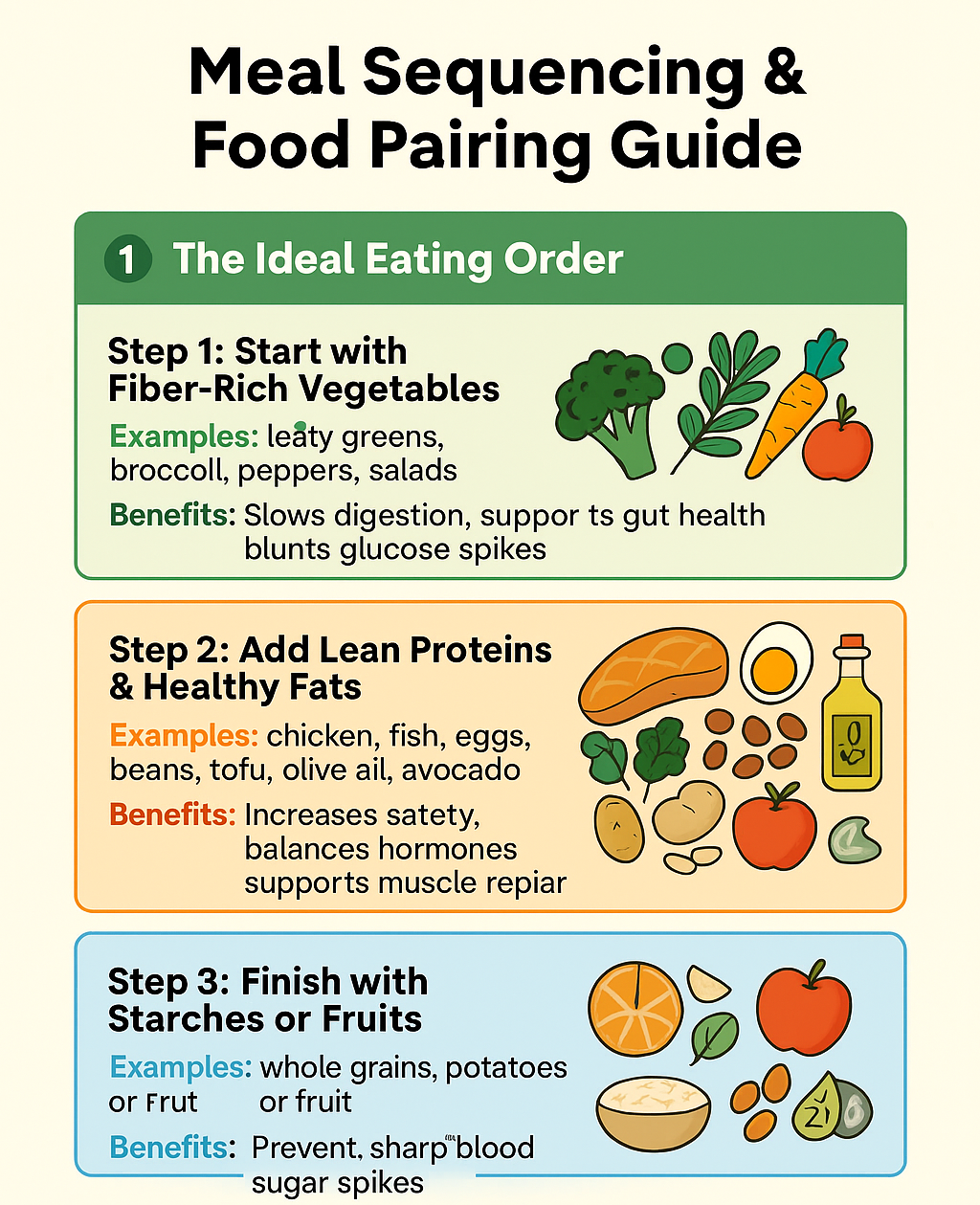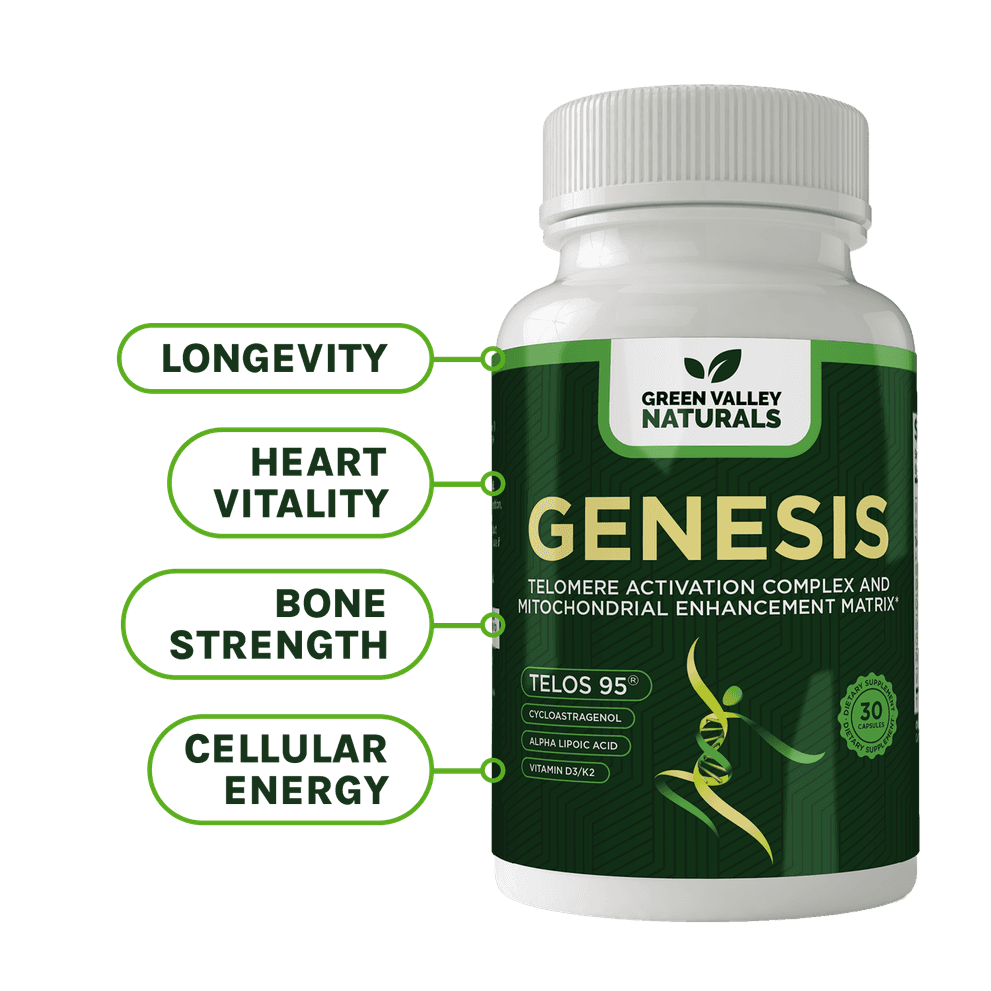
You’re diligent about your supplements—but are they quietly canceling each other out? The truth is, some nutrients compete like rivals while others supercharge each other. This essential guide reveals the “don’t-mix” pairs, the superhero combos, and the timing tricks that turn a good routine into a great one.
Key Takeaways
Food contains a complex network of vitamins, minerals, and phytochemicals that work together synergistically, whereas supplements tend to work in isolation. So food should always be your go-to nutritional choice, with the exception of folate.
Proper balances of essential nutrients are critical to complete a vast array of processes in our body.
Certain vitamins compete with others for uptake within the body. Others work as a team to do more good for the body.
Introduction to Vitamin Interactions
Nearly all health experts agree that the best way to get all the nutrients your body needs is to eat a healthy diet. Eating a wide variety of nutrient-dense whole unprocessed foods is your best way for your body to thrive. Every system in your body needs these nutrients to stay healthy and perform your best. Foods should form your go-to strategy. Never use supplements as a substitute for a balanced diet.
Food vs. Supplements
Whole foods consist of a complex of vitamins, minerals, and phytochemicals (plant chemicals) that work together -- probably because the vitamins and minerals in foods are also influenced by other (perhaps unknown) components of the food. Supplements tend to work in isolation.
Dietary supplements should be exactly that -- supplementary. They're there to make up for dietary shortfalls and meet special needs such as pregnancy, older age, and deficiencies caused by your specific genetics or certain conditions. Vitamin supplements should always be taken in an informed way, such that it will support health, not cancel each other out or, even worse, cause harm.
Vitamins are organic compounds that participate in various metabolic functions. Certain supplements fight each other for absorption, and others can cause adverse effects when combined. Still others can boost nutrient uptake and vitamin absorption when paired together, giving you a burst of synergy. In a nutshell, they may block or improve bioavailability, depending on numerous factors.
One important factor is whether you're taking stand alone vitamin formulas or a proprietary blend that's scientifically formulated to ensure absorption of all the ingredients-- even nutrients that might normally cancel each other out. When you take a scientifically formulated supplement you can trust that the nutrients are the type, dosage and blend that's scientifically documented to work together for maximum absorption and effectiveness. As for other formulas and stand alone nutrient supplements, keep reading for details of how essential nutrients can work synergistically -- or not.
Two Varieties of Dietary Vitamins
It's important to understand that most dietary vitamins come in two varieties -- water soluble vitamins and fat soluble vitamins.
Water-soluble vitamins include the B vitamins and vitamin C. They dissolve in water, are absorbed directly into the bloodstream, and any excess is usually excreted in the urine. They need to be regularly replaced through diet.
Fat soluble vitamins such as vitamins A, D, E, and K, require dietary fat for absorption. Any excess is stored in the liver and fatty tissues, which lets the body draw on reserves... but it also increases toxicity risk if taken in excessive amounts.
Both water soluble vitamins and fat soluble vitamins can pose risks if you're not smart about it. So you should always consult your healthcare provider before making vitamin supplement changes, adding or subtracting dietary supplements... especially if taking multiple supplements or medications, sometimes known as supplement stacking.
Stand Alone Vitamins You Shouldn't Mix -- Don't Mix These
Consuming certain supplements together can reduce their effectiveness as they may compete with each other for absorption... as well as increase your risk of side effects or harmful reactions.
If you're discussing supplement stacks with your complementary and integrative health care provider, also discuss the timing of each supplement to assure maximum absorption (and maximum benefit from your supplement dollar). Most people don't realize how important timing is to a supplement's (or food's) effectiveness.
Don't Mix: Iron and Calcium
Iron helps you form healthy red blood cells and provide energy. High levels of calcium supplement decrease iron absorption in the gut. While this usually has short-term impact, it's still relevant for iron-deficiency prone individuals.
Men and post-menopausal women can easily accumulate an excess of iron, so care should be taken to measure iron levels before using any supplement containing iron. An integrative health care provider can order bloodwork for you and advise accordingly. That said, iron deficiency is quite common, especially in younger females who lose blood through menstruation monthly.
Tip: Separate iron supplements by at least 2 hours from calcium supplement or dairy. It's also advisable to take calcium rich foods such as dairy or leafy greens 2 hours apart from any multivitamin containing iron.
Don't Mix: Iron and Zinc
Similar to iron and calcium, iron and zinc compete with each other for the same pathways in the gut. If you take zinc and iron supplements at the same time, your body likely won't absorb the zinc. For best absorption, take zinc on an empty stomach a couple hours away from taking iron supplements with food.
Don't Mix: Zinc and Copper
Zinc supplementation (including use of cold lozenges) interferes with copper absorption, and taking too many zinc supplements can even trigger a copper deficiency and anemia.
It's all about balance. Zinc-copper balance and why too much zinc lowers copper. The generally recommended balance of zinc-to-copper is 10:1. If you use zinc supplements for your immune system, eye health, or wound healing, consider adding enough copper to keep your intake levels at 10:1.
Eating copper rich foods such as shellfish, seeds, nuts, and organ meats can help with this balance. Monitor your copper and zinc levels.
Don't Mix: Zinc, Calcium and Magnesium (and Other Mineral Competition)
Mineral supplements are tricky because they compete for the same receptors and share common intestinal transporters.
Thus, minerals such as zinc, magnesium, and calcium, should be taken at least 2 hours apart as single high-dose mineral supplements rather than altogether at once. This is not a concern in lower doses, such as in balanced multivitamins or in proprietary blends scientifically formulated for absorption using patented, clinically tested mineral or vitamin combinations, such as Green Valley Naturals Bone & Muscle Defense supplement.
Don't Mix: Vitamin E and Vitamin K
Vitamin E and vitamin K play competing roles in the body, especially at high doses and when combined with blood thinning prescription medications. Vitamin K helps your blood clot, whereas vitamin E has a blood thinning effect. And separating doses by a few hours does not counteract this effect. That's because their antagonistic roles aren't about competition in the gut. It's a systemic effect in the liver and clotting pathways. Vitamin E and other blood thinning supplements can increase bleeding risks.
This effect is strongest in those taking blood thinning anticoagulants or high doses of vitamin E supplements. Keep vitamin E doses moderate and work closely with your health professional. Timing dosages won't do much for you, so you must manage dosages and keep it at a healthy level.
High dose fish oil is likewise risky for those taking blood thinning prescription medications.

Don't Mix: Vitamin C and Vitamin B12
The B vitamins and vitamin C are two supplements that are water soluble. As such, large doses will be eliminated in the urine if it's beyond what your body absorbs.
However, taking vitamin C at the same time as vitamin B12 has historically been thought to degrade vitamin B12 in the digestive tract. Modern evidence points to minimal risk at normal doses. But if taking more than 1g of vitamin C with oral B12, set your doses at least two hours apart. And do them in alphabetical order -- B12 first, followed by C at least two hours later.
Don't Mix: Supplements with Thyroid Hormone (Levothyroxine)
Minerals such as calcium, iron, and magnesium can reduce thyroid medication absorption, whether Levothyroxine or Nature Thyroid. Separate by 4 hours, or ask your doctor.
Take thyroid meds on an empty stomach, and wait for 4 or more hours before taking mineral supplements.
Don't Mix: Green Tea with Iron Rich Foods/Supplements
The main component in green tea, epigallocatechin gallate (EGCG) binds with iron and reduces its absorption. But green tea does own health benefits. So drink it, and wait 2 hours afterwards before taking an iron supplement.
Don't Mix: Some Herbal Supplements and Certain Medications
Some herbal supplements can interfere with multiple medications, so speak with your healthcare provider before taking them. The herbs in question include St. John's wort, Goldenseal, Ginseng, and Gingko, which may interfere with prescription medications, notably those used for cardiovascular disease symptoms. Some experts suggest avoiding St. John's wort and Goldenseal entirely, due to the high incidence of interactions.
Using herbs in cooking is generally fine because it's done in low doses.
Good Pairings and Bad Pairings Timing Chart
Category | Combination | Effect |
Good Pairings (Boost Absorption) | Vitamin C + Iron | Vitamin C boosts iron absorption significantly |
Good Pairings (Boost Absorption) | Vitamin D + Calcium | Vitamin D helps calcium absorption into bones |
Good Pairings (Boost Absorption) | Magnesium + Vitamin D | Magnesium supports vitamin D metabolism |
Bad Pairings (Reduce Absorption) | Calcium + Iron | Calcium blocks iron absorption |
Bad Pairings (Reduce Absorption) | Magnesium + Calcium + Zinc (high doses)*only in standalone formulas, not proprietary blends | Minerals compete for absorption in the intestines |
Bad Pairings (Reduce Absorption) | Copper + Zinc | Zinc in high doses lowers copper absorption |
Bad Pairings (Risky Interactions) | Vitamin K + Blood Thinners / Fish Oil (high doses) | Vitamin K counteracts blood thinners, combo raises bleeding risk |
Bad Pairings (Risky Interactions) | Niacin + Red Yeast Rice | Both can stress the liver, raise enzyme levels, and cause side effects |
Bad Pairings (Risky Interactions) | Multiple Blood Thinning Supplements in High Doses (Fish Oil, Ginkgo, Garlic, Curcumin, Vitamin E) | Increased bleeding risk, especially before surgery |
Smart Combinations: Beneficial Vitamin Pairings
While some vitamin and mineral supplements interfere with each other, or with certain medications, others benefit each other. For example, B vitamins are all related, and pair well with the other B vitamins. B vitamins include pantothenic acid as well as folic acid (folate is the active form). If you have questions that are beyond the scope of this article, consult your healthcare provider or seek nutrition counseling to fit different vitamins into a supplement stack that works to help you maintain good health.
Vitamin C + Non-Heme Iron – Vitamin C aids iron absorption, especially that of plant-based foods like beans and lentils. But if you need to limit iron, take vitamin C away from food sources of iron to reduce absorption.
Vitamin D + Calcium + Vitamin K2 – Synergistic support for bone health, optimizing calcium delivery and bone health. Most people can get enough calcium from dietary sources with a little planning, from foods such as dairy products, leafy greens (kale, collards, Bok choy), and from sardines with bones. Those likely to have calcium insufficiency include older adults (who lose bone mass) and dairy-free eaters. Excessive calcium has been linked to kidney stones, so use moderate doses. Vitamin D is thought to need magnesium and K2 to maximize absorption.

Magnesium + Vitamin D3 -- Magnesium helps your body activate vitamin D metabolism.A 2018 study published in The American Journal of Clinical Nutrition showed that without sufficient magnesium, vitamin D synthesis was impaired. Magnesium is needed to convert vitamin D into a form that the body can use.
Fat-Soluble Vitamins (Vitamin D, A, E, K2) -- Fat soluble vitamins such as vitamin D are best absorbed with healthy dietary fats such as avocado, eggs, olive oil, or butter. Don't overdo these fat soluble vitamins, as any surplus gets stored within your fat cells and liver and can cause toxicity issues in higher amounts. Vitamin E supplementation is best done using mixed tocopherols.
How About the Nutrients in Multivitamins?
Since you now know that some vitamins and minerals inhibit others' absorption, you might wonder about whether that happens with multivitamins. For example, a daily multivitamin with vitamin C and zinc. The short answer is that since multivitamins are formulated with smaller, balanced doses, they don't seem to compete with each other in the same way that supplement stacks at high doses do. The same holds true of prenatal vitamins.
Most supplements including a daily multivitamin and prenatal vitamins should be taken with your largest meal of the day, preferably with healthy fats (avocado, eggs, nuts, fatty fish) to aid absorption of the fat-soluble nutrients. But the best time of all to take your vitamins is the time you'll be consistent taking them. Every day.
Note that while taking your supplements "all at once" may be simple and convenient, doctors and nutritionists warn that this isn't necessarily optimal, because timing matters more than most people think.
Water based supplements such as B vitamins and vitamin C should be taken between meals with a glass of water. Folic acid/folate and the other water soluble vitamins need water for absorption.
Labeling your supplement containers as breakfast, lunch, or dinner can help you keep track -- or use a vitamin dispenser. Always read labels and involve your healthcare provider in your supplement decision-making.
A registered dietitian or other healthcare provider can help tailor supplement plans to your own needs.
Simple Supplement Timing Chart
Time of Day | Supplements | Notes | |
|---|---|---|---|
Early Morning | Thyroid medication (if applicable) | Wait at least 2 hours before consuming calcium, magnesium, iron. | |
Mid-Morning with food | Fat-soluble vitamins (Vitamins D/A/E/K) | Take with healthy fats. | |
Lunchtime | Multivitamin & B Vitamins | Taking these in the evening may be too energizing. | |
Afternoon | Iron + Vitamin C | Away from calcium/dairy, on an empty stomach. | |
Evening | Magnesium | Away from high-dose zinc and calcium; may support relaxation. |
Safety Notes & Special Considerations
Pregnancy & breastfeeding – Dosages and pairings should be clinician-guided.
Anticoagulants – Avoid unsupervised high-dose vitamin E or high dose fish oil, especially in combination with prescription blood thinners, unless cleared by your doctor.
Kidney disease – Be cautious with high-dose minerals (calcium, magnesium, potassium) if you have kidney disease.
Fat-soluble vitamins – You risk toxicity if you take too many vitamins that are fat soluble. Stick with moderate doses, not mega-doses. And consult your doctor if you're on blood thinners.
Water soluble vitamins -- Even though you theoretically excrete any excess, some water soluble vitamins can cause problems at 3 to 10 times the recommended limit... Vitamin C > diarrhea, nausea, vomiting, headaches. Vitamin B3 > stomach pain, high blood pressure, vision problems, liver damage. Vitamin B6 > skin lesions, heartburn or neurological problems. Vitamin B9/folate . neurological problems, weakened immunity, mask a severe B12 deficiency. So yes, you can theoretically overdose on water soluble vitamins.

Healthy Eating & Nutrient Balance (Nutrient sequencing with foods)
A balanced diet is the safest way to get maximum vitamins and minerals. By doing so, you spare yourself from potentially dangerous interactions while getting all the hidden co-factors that aid absorption and help you maintain good health.
That said, the order in which you eat also matters. Start your meals with fiber-rich veggies to slow blood sugar spikes. Follow that with lean protein and healthy fats to promote satiety. And finally, finish with starches or fruits so the fiber and protein you already ate blunt glucose release. This is opposite what many restaurants do when they start with bread, which can readily spike your blood sugar. Skipping the bread and starting with salad is a much smarter idea.
Pairing foods also boosts nutrition in many of the same ways as pairing supplements does. Vitamin C–rich produce (i.e., peppers or citrus) enhances iron absorption, healthy fats (olive oil or avocado) improve uptake of fat-soluble vitamins A, D, E, and K, and zinc balances copper for mineral synergy. Avoid combining nutrients that block each other by spacing them out or eating them at a different meal. Eating with smart pairings maximizes nutrient availability and supports gut health, blood sugar control, and long-term wellness.
Benefits of nutrient sequencing include:
Improved blood sugar
Enhanced nutrient absorption
Weight management
Hormonal optimization such as insulin, cortisol, leptin, and ghrelin
Supports fitness and muscle building
Improves digestive efficiency
Nutrient sequencing is more than just what you eat -- but how and when you eat it. It's based on the fact that nutrients don't act alone. They can team up with or block the actions of other nutrients.
Supplements are a great supplement. But again, many of the aforementioned conflicts and risk factors become riskier at supplement doses than they are in foods.
Summary
This article explains why food should be your primary nutrient source and how supplements are best used to fill gaps—not as cure-alls. It details water- vs. fat-soluble vitamins, then lists common conflict pairs (e.g., iron↔calcium, zinc↔copper, high-dose E↔K, minerals↔thyroid meds) and beneficial combos (vitamin C+iron, D+calcium+K2, magnesium+D3). You’ll get a practical “don’t mix” list, a smart-pairings chart, and a timing schedule (what to take morning/noon/night) so you avoid blocking absorption or creating risks. Safety notes cover anticoagulants, kidney disease, and water-soluble megadoses. A quick primer on nutrient-sequencing with meals shows how to stack foods for better absorption and steadier blood sugar. Bottom line: group synergists, separate competitors by 2–4 hours, keep doses moderate, and coordinate with your clinician.
Frequently Asked Questions
What vitamins cancel each other out?
Certain vitamins and minerals compete with or cancel out each other's absorption. For example, calcium interferes with iron, high-dose zinc reduces copper levels, and large doses of vitamin E can block vitamin K's clotting effects. Taking these in the right balance, and/or at different times of day can help avoid nutrient conflicts. You want to separate competing nutrients by at least 2 hours and time for function -- energizing nutrients (B vitamins) in the morning, calming ones (magnesium) in the evening. Also, group synergistic nutrients together (fat-soluble, vitamin D3/K2)
Can I take vitamin C and B12 together?
It's advisable not to take high-dose vitamin C at the same time as vitamin B12, as excess vitamin C can degrade B12 inside the digestive tract. If you supplement with both, go in alphabetical order (B12 before C) and separate them by a few hours to maximize their absorption.
How far apart should I take iron and calcium?
Iron supplements and calcium supplements should be take at least 2 hours apart, because calcium reduces how much iron the body absorbs. For best results, take iron on an empty stomach with vitamin C to boost absorption, and follow with calcium with food later in the day.
Can I take magnesium and calcium at the same time?
Magnesium and calcium compete for absorption when taken together in high doses. The small amounts in a multivitamin are fine. But larger standalone supplements are best consumed at different times of day to maximize benefits and reduce digestive upset.
1. Miller, K. (2025, August 7). What Vitamins Should Not Be Taken Together? Prevention. Accessed August 29, 2025. https://www.prevention.com/health/a65399872/what-vitamins-should-not-be-taken-together/
2. Beach, L., & Laboranti, L. M., RD. (2024, September 16). What Vitamins Shouldn’t Be Taken Together? Nature Made. Accessed August 29, 2025. https://www.naturemade.com/blogs/health-articles/what-vitamins-should-not-be-taken-together
3. Borst, H. (Updated 2025, August 14; Med. rev. L. Greenberg, MD). What vitamins should not be taken together?SingleCare. Accessed August 29, 2025. https://www.singlecare.com/blog/what-vitamins-should-not-be-taken-together/
4. MedicineNet Editorial; Med. rev. Sachdev, P., MD. What Vitamins and Supplements Should Not Be Taken Together?MedicineNet. Accessed August 29, 2025. https://www.medicinenet.com/what_vitamins_should_not_be_taken_together/article.htm
5. Chenoweth, H. (2025, May 3; Med. rev. L. Iu, R.D., C.D.N.). 5 Vitamin and Supplement Combinations You Should Avoid, According to Dietitians. Good Housekeeping. Accessed August 29, 2025. https://www.goodhousekeeping.com/health/diet-nutrition/a64620677/vitamins-you-shouldnt-mix/
6. Dilley, K., RDN, LD. (2024, September 10). Is it possible to take too many vitamins? Ohio State Health & Discovery. Accessed August 29, 2025. https://health.osu.edu/wellness/exercise-and-nutrition/vitamins-and-supplements
7. WebMD. (2024, March 27). Supplement Smarts: Best Ways to Take Different Vitamins (Slideshow). WebMD. Accessed August 29, 2025. https://www.webmd.com/vitamins-and-supplements/ss/slideshow-best-ways-to-take-different-vitamins
8. Better Health Channel (Victorian Department of Health). Vitamin and mineral supplements – what to know. Better Health Channel. Accessed August 29, 2025. https://www.betterhealth.vic.gov.au/health/healthyliving/vitamin-and-mineral-supplements-what-to-know
9. Hui-Anderson, A. (Updated 2025, March 12; Med. rev. E. Prouty, PharmD). 9 Dangerous Supplement Combinations You Should Avoid. Verywell Health. Accessed August 29, 2025. https://www.verywellhealth.com/supplements-you-should-avoid-mixing-8737437
10. Everlywell. (Medically reviewed 2022, September 27 by J. F. Stabile, MD, FAAFP). What vitamins should not be taken together? Everlywell. Accessed August 29, 2025. https://www.everlywell.com/blog/vitamins-supplements/what-vitamins-should-not-be-taken-together/


